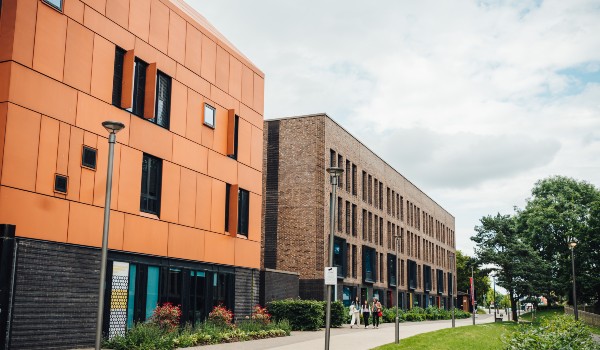Figuring out your preferences

OFF-CAMPUS
Off-campus offers a wider range of styles and types of homes and housing. Some things to think about:
- Different local areas will have different styles of housing (purpose-built student accommodation, privately shorthold tenancies, living with a landlord)
- You may have a budget that you need to stick to- think of what you need!
Top tip: Do not rush to rent! There are plenty of off-campus accommodations.
ON CAMPUSLink opens in a new window
If you're considering living on campus, Warwick Accommodation prioritise students who are supported by Wellbeing and Student Support.
Keep an eye on your emails and our website for updates and announcements on when room bookings open.
A very limited number of rooms are usually bookable on a first-come, first-served basis for students who are not supported for specific accommodation requirements.
Warwick Accommodation aim to open campus room bookings in January 2026.


COMMUTING
We know students come from all walks of life, and living at home or commuting from a family home may be the preferred option.
We've pulled together some top tips and guidance from other students who also commute and you can see them on our pages here.
Short-term letsLink opens in a new window
The SU has guidance on how to find somewhere to stay if you're looking for a short term (less than 6 month) place to stay.
The student funding team at the university has pulled together some general advice on budgeting, which will help you to get started! They also have general tips on managing money for those who are looking for wider guidance.

RENT
The main additional cost when moving somewhere new is the rent. Different places will have different rental costs, some include utilities and some don't.
Have an idea of roughly what you can afford monthly for rent, and what your bottom and top end is.
Check out the pricing below

UTILITIES & BILLS
Utilities and bills are the second biggest cost, and often encompass everything from water, electricity, gas (heating) and internet.
There are also additional costs that you will need to factor in such as TV license and contents insurance.
We recommend you do some research and understand what works best for you and your area.

ADDITIONAL COSTS
Moving to a local area can come with some lovely additions, but also you may want to consider:
- Travel or transport costs (how much will it cost to catch the bus every day, is there alternatives)
- Health and wellness- classes and gym costs, prescriptions and vitamins
- Deposit and other moving-in costs
- Food and shopping
Always remember to look for student discounts.

